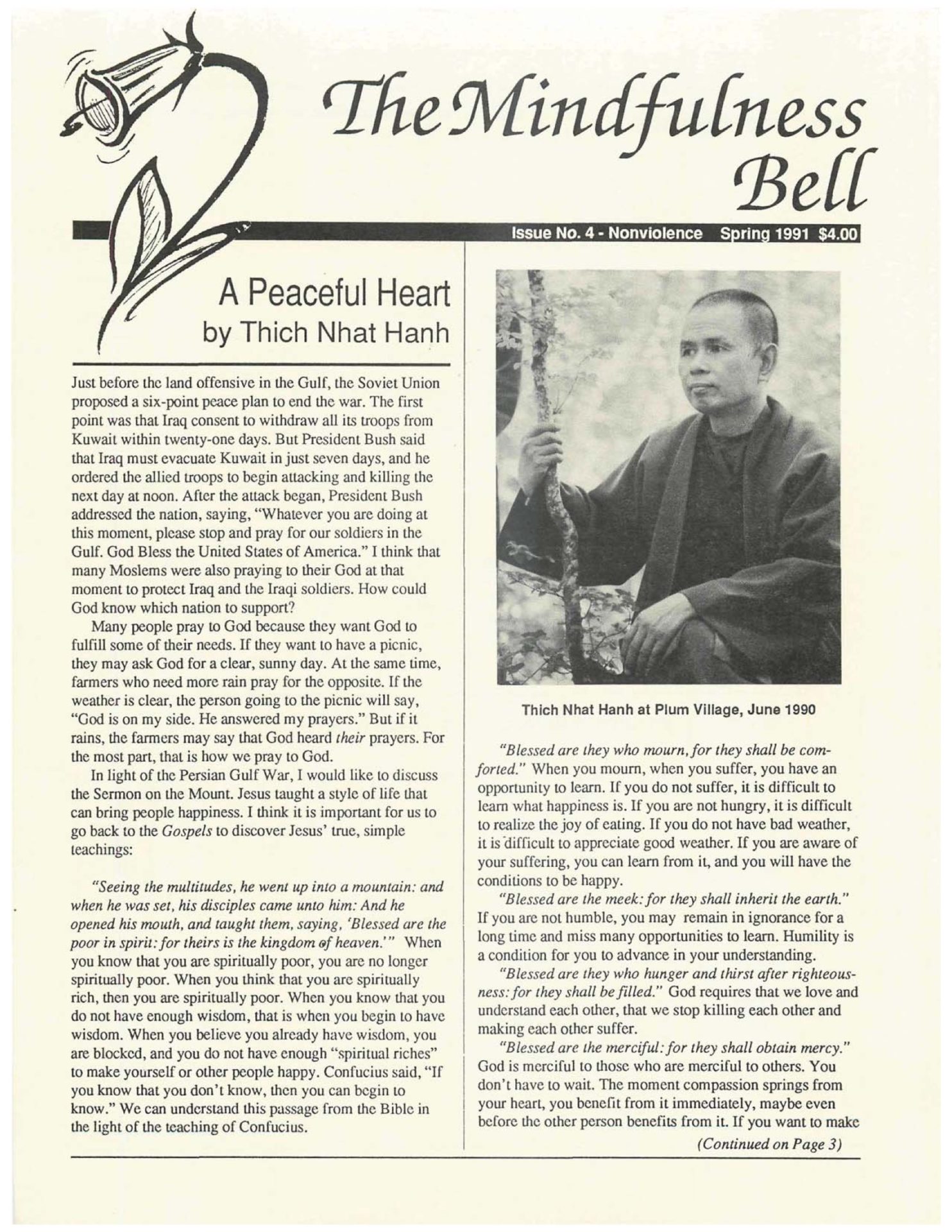By Ellen Goldstein
Before the war broke out, I watched Saddam with disgust, terror, interest, even with amusement. I listened to his war cries and his claims, and heard the machinations of a power glutton. But did not see that my growing hatred of him was feeding the very mind that so horrified me. I did not see that, in fact, his sickness and my sickness were identical, that Saddam and I are the same poison.
By Ellen Goldstein
Before the war broke out, I watched Saddam with disgust, terror, interest, even with amusement. I listened to his war cries and his claims, and heard the machinations of a power glutton. But did not see that my growing hatred of him was feeding the very mind that so horrified me. I did not see that, in fact, his sickness and my sickness were identical, that Saddam and I are the same poison.
At times I hate him for bringing this to me. I don't want to see that, by falling into this pit of anger, and justified righteousness, I become Saddam. What is so different? I hate, he hates. I see that I wouldn't be saddened by news of his death. I count the downed planes and forget the disintegrated pilots. I hope that the Allied war machine can uproot the entrenched swarm of Saddam loyals. I forget that many of those hunkered soldiers fight for Saddam only because if they do not, they face their own death and that of their wives, children, mothers, fathers, brothers, uncles, cousins.
In the first days after the war began, I spent hours stuporously watching the television, mesmerized by the words used to describe, without naming, murder and death. The first night, my son leaped out of a sound sleep from our bed - where he had fallen quiet an hour before -- and with a look of absolute terror on his face, ran to the bathroom, and vomited his fear. I was panicked at the sight of such a terrible fear on my innocent, young boy's face. I saw then, only to forget again, the face of a child who has bombs dropping on his head, his world, his life. My son, who was to be home ill for the next week as we watched this insanity unfold, reminded me that all of this could not be taken lightly, that I could not afford to fall into the haze of an unfeeling, unaffected spectator of a glorified war movie.
I watched a video this morning about the Dalai Lama. He spoke about the Buddhist teaching of compassion, of opening one's heart to the oppressor, of seeing that the oppressor and the oppressed share the same human heart, human suffering. I remembered that Gandhi, when he was shot by an assassin, reached out his hand, gave his heart to his killer. I am reminded of a poem, "Please Call Me By My True Names," by Thich Nhat Hanh, who asks if we can recognize ourselves in each other. There is a struggle to find a place to rest here, a cause to believe in, an action to feel righteous about, a soldier to encourage, support, and defend. I can be the soldier. I can be the peace activist marching on the street. I can be the wailing mother whose child was killed by a bomb, or the bitter wife whose husband drops dead from fright, or the thirsty man holed up in a shelter, wondering when the bombing will stop. I can be Saddam, hungry for power, martyrdom, control, wealth, and loyalty.
Ellen Goldstein is a counselor at the Heartwork Institute in Rochester, New York.

